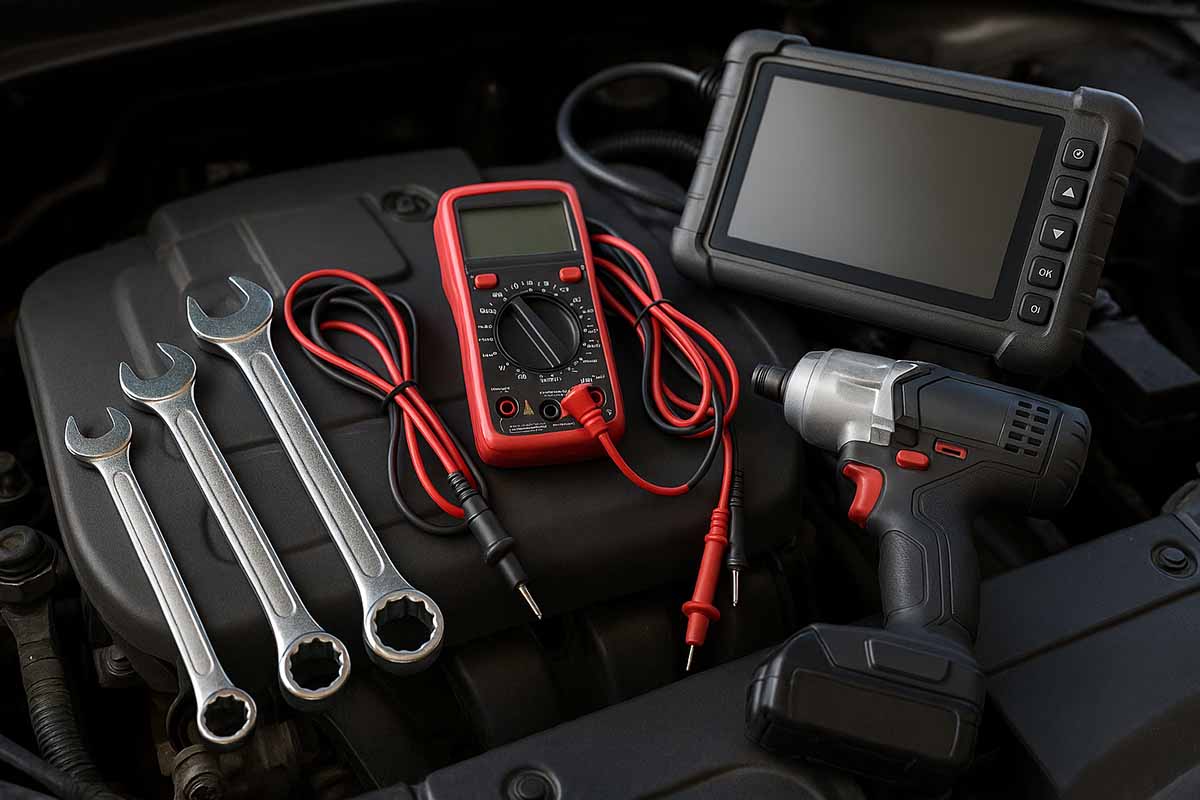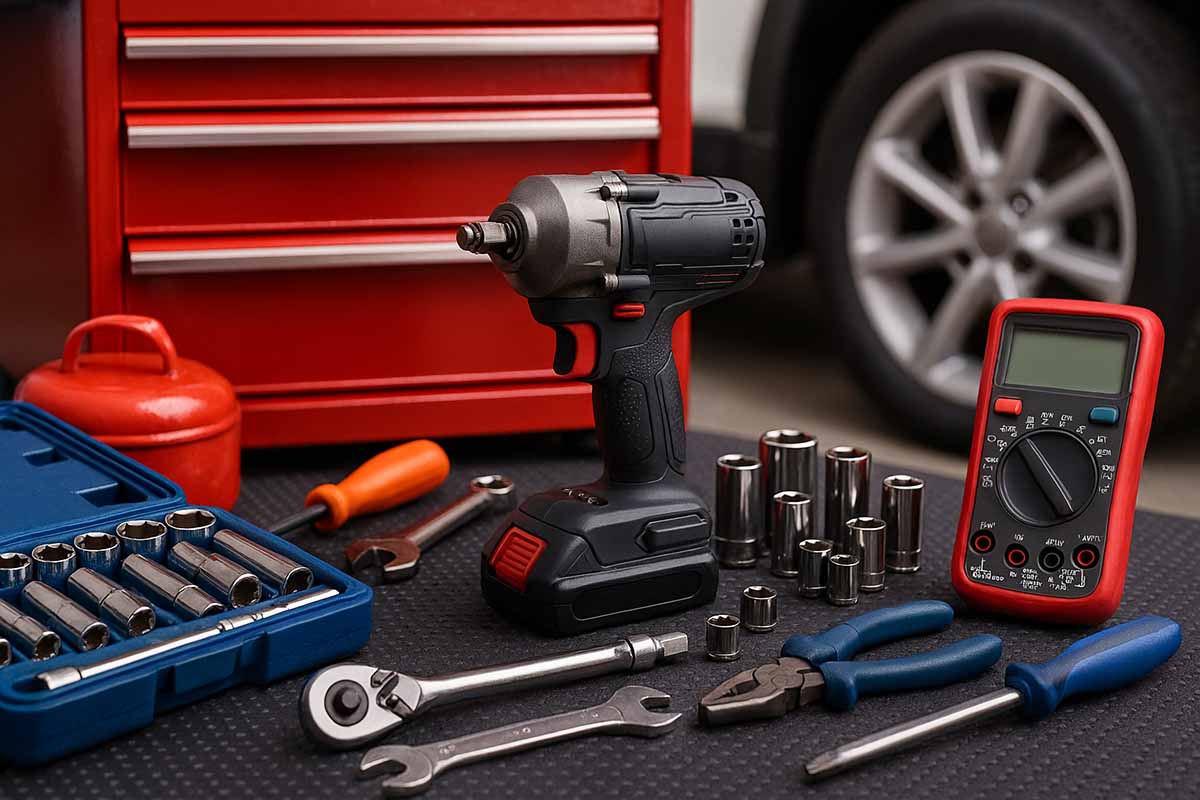In the fast-paced world of automotive repair, your skills are only as good as the tools in your hands. Whether you’re a professional mechanic in a busy garage or a weekend DIYer in your driveway, having the right equipment can mean the difference between a smooth repair and a frustrating headache. Let’s dive into the must-have tools that keep vehicles running efficiently and diagnostics precise.
1. Socket and Wrench Sets
No toolbox is complete without a high-quality socket and wrench set. These are the backbone of most repairs – from changing spark plugs to removing stubborn bolts.
- Pro Tip: Look for sets with both metric and SAE sizes.
- Funny Fact: That one 10mm socket? It’s probably hiding under your workbench – along with all the others you’ve “lost.”
2. Torque Wrenches
When precision matters, torque wrenches ensure bolts are tightened to the manufacturer’s specifications – especially critical for engine work, brake systems, and suspension parts.
- Lesser-Known Fact: Over-tightening a bolt can cause more damage than under-tightening, leading to costly failures.
3. OBD-II Diagnostic Scanners
Modern cars are basically computers on wheels, and an OBD-II scanner is your access key.
- Reads and clears error codes
- Provides real-time sensor data
- Helps track down intermittent problems faster
For professionals, advanced scanners can even run manufacturer-specific tests.
4. Hydraulic Floor Jacks and Jack Stands
If you’re getting under the vehicle, stability is non-negotiable.
- Rule #1: Never rely solely on a jack – always use jack stands.
- Safety Note: Position stands on solid, level ground to prevent accidents.
5. Multimeters
Electrical systems are everywhere in modern vehicles. A good multimeter helps diagnose battery issues, faulty wiring, and alternator problems quickly.
- Measures voltage, current, and resistance
- Detects shorts or parasitic drains
6. Pneumatic and Cordless Impact Wrenches
These tools save time (and your wrist) when removing stubborn lug nuts or suspension bolts.
- Cordless versions are now powerful enough for most professional jobs
- Great for roadside tire changes and busy shop workflows
7. Brake Bleeding Kits
For safe stopping power, brakes must be air-free. A brake bleeding kit makes the job cleaner and more efficient—especially if you work alone.
8. Cooling System Testers
Overheating is a common cause of breakdowns. Cooling system testers help identify leaks, bad thermostats, or failing radiator caps before they become bigger issues.
9. Creepers and Work Lights
You can’t fix what you can’t see – or reach.
- Creepers let you roll under a vehicle comfortably
- LED work lights ensure visibility in tight engine bays and wheel wells
10. Specialty Tools for Common Jobs
Depending on your focus, consider:
- Spark plug socket sets
- Timing light tools
- Bearing pullers
- Fuel pressure testers
You May Want to Read More About the Automotive Industry
- Industrial Tools in the Automotive Industry
- Digital Twins in Automotive Tooling: Smarter Maintenance, Fewer Breakdowns
- Comparing Pneumatic vs. Electric Tools in Automotive Workshops
- How Industry 4.0 Is Reshaping Automotive Assembly Lines
- Trends in Automotive Manufacturing Automation
- Impact of Industry 4.0 and IoT on Automotive Tooling
- Essential EV Toolkits for Modern Automotive Work
- Reviews of 5 Leading Automotive Tool Brands
- Top Tools for Automotive Repair and Diagnostics
- Specialized Equipment for Engine Rebuilding
- Automotive Fasteners and Torque Specs Explained
- Safety Tools and PPE in Automotive Workshops
- Troubleshooting Common Automotive Tool Problems
- Top Automotive Tool Brands Reviewed
- Fasteners in Automotive Manufacturing: What Makes the Cut?
- How to Use a Torque Wrench in the Automotive Industry
- Automotive Torque Wrench Buying Guide 2025
- Best Smart Tightening Tools for Industrial Assembly (2026 Guide)
- Best Automotive Diagnostic Tools (2026) – Expert Buying Guide
Conclusion: Equip for Success
Automotive repair is a balance of knowledge, skill, and the right gear. Whether you’re chasing down electrical gremlins or rebuilding an engine, investing in high-quality tools pays off in efficiency, accuracy, and safety. After all, a well-equipped toolbox isn’t just about fixing cars – it’s about making the job faster, cleaner, and more enjoyable.
Call to Action:
What’s the one tool you can’t live without in your garage? Drop your answer in the comments below and share this guide with a fellow car enthusiast.





